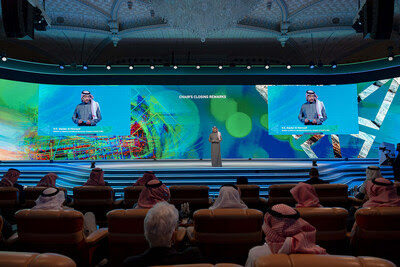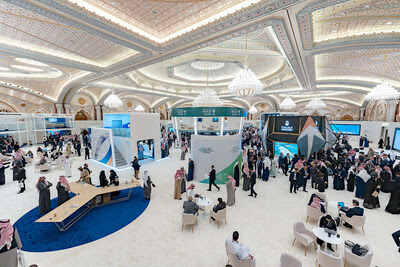Alou Diallo says he was drinking tea with his family one morning last month when groups of “white soldiers” invaded his village in central Mali, setting fire to houses and gunning down people suspected of being Islamic extremists. He scrambled to safety in the bush, but his son was shot and wounded while fleeing, then was finished off as he lay on the ground.
“I watched my 16-year-old son die,” Diallo told The Associated Press in Mali’s capital, Bamako, where he lives in a makeshift camp for displaced people. As he recounted that awful Saturday in his village of Bamguel, the 47-year-old former cattle breeder made no attempt to hide the anger toward the troops, which he believed to be Russian mercenaries, who turned his world upside down.
“I really want peace to return and things to go back to normal,” he said. “Here in Bamako, I live a life I didn’t choose.”
It’s been more than a year since hundreds of fighters from the Wagner Group, a shadowy Russian military contractor, began working alongside Mali’s armed forces to try to stem a decadelong insurgency by Islamic extremists in the West African country, Western officials say.
But since the mercenaries arrived, diplomats, analysts and human rights groups say indiscriminate violence against civilians has grown, the extremists linked to al-Qaida and the Islamic State group have only gotten stronger, and there’s concern the Russian presence will further destabilize the already-troubled region.
More than 2,000 civilians have been killed since December 2021, compared with about 500 in the previous 12 months, according to the Armed Conflict Location & Event Data Project, a nongovernmental organization. At least a third of those deaths recorded last year were from attacks involving the Wagner Group, according to the data compiled by ACLED.
“They are killing civilians, and by their very presence, giving Malian security forces a green light to act on their worst inclinations,” said Michael Shurkin, senior fellow at Atlantic Council and director of global programs at the consultancy group 14 North Strategies.
Military contractors from Wagner, which was founded by Yevgeny Prigozhin, a millionaire businessman with ties to Russian President Vladimir Putin, have been bolstering Moscow’s forces during its invasion of Ukraine. But experts say they also operate in a handful of African countries.
Ever since Mali’s military seized power in two coups starting in 2020, a junta led by Col. Assimi Goita has had tense relations with the international community.
France sent troops to Mali in 2013 to help its former colony drive Islamic militants from northern areas of the country but withdrew them in August as relations frayed and anti-French sentiment grew in the population. The West says Mali is increasingly looking to Moscow for security, although the junta says it has only invited in military trainers.
Alassane Maiga, head of communications for the junta, insisted that Wagner was not operating in the country. Asked about the attacks on civilians, Maiga said Mali’s government protects its citizens and their property.
“The army’s protection and security missions are carried out with respect for human rights and international humanitarian law,” he said.
The Wagner Group did not respond to requests for comment. At a U.N. Security Council debate Tuesday, Russia’s deputy ambassador Anna Evstigneeva rejected attempts from abroad “to besmirch Russian assistance to Mali,” where Moscow has a bilateral agreement to assist the transitional government. She did not mention the Wagner Group.
Up to 1,000 mercenaries have been deployed and the Wagner Group is being paid nearly $11 million a month to provide security and training, according to a report by the U.S. Military Academy’s Combating Terrorism Center, which studies extremist violence.
The report said Wagner’s forces are struggling to make significant gains, with jihadi violence increasing. During the rainy season between June and September when fighting usually subsides, there were over 90 attacks against civilians and the military by an al-Qaida linked extremist group, compared with six in the same period a year earlier, it said, and an August assault on a barracks by an Islamic State-linked group killed at least 42 Malian soldiers.
In the bloodiest attack, Human Rights Watch said Mali’s army and foreign troops suspected to be Russian rounded up and killed an estimated 300 men in the town of Moura in March. Some were believed to be Islamic extremists, but most were civilians. The investigation cited 27 people, including witnesses, traders, community leaders, diplomats and security analysts.
Mali’s Defense Ministry reported a similar incident at the time but said it had killed 203 “terrorists” and arrested 51 others.
“There are broad reports of human rights abuses across the region where they are working,” U.S. Undersecretary of State Victoria Nuland said of the Wagner mercenaries. “And we worry that these forces are not interested in the safety and security of the people of Mali but, instead, are interested in enriching themselves and strip-mining the country and are making the terrorism situation worse.”
Samuel Ramani, associate fellow at the Royal United Services Institute, a defense and security think tank, said Russia is not very credible at counterterrorism in Africa.
“What we’ve seen repeatedly is that Russia and the Wagner Group forces are much better at strengthening the hold of authoritarian regimes in power than actually combating rebels and terrorist groups,” Ramani said, citing their limited knowledge of the terrain, strained relationships with low-ranking officers and a rigid command and control structure.
Many Malians accuse the military and the white soldiers working with them of arbitrary arrests of civilians herding cattle, farming or going to market. Most of them are ethnic Fulani who are increasingly targeted by security forces suspecting them of supporting the Islamic militants.
Rights groups say these alleged abuses aid the extremists, who capitalize on public grievances for use as a recruiting tool.
A 29-year-old cattle herder named Hamidou said he was arrested at his home in Douentza village in central Mali with two other people in November and accused of being an Islamic militant. He was locked in a room where he was bound, beaten and interrogated by “white soldiers.”
“We were severely beaten daily. We didn’t think we’d survive,” said Hamidou, who asked to be identified only by his first name for fear of reprisal, adding that most of those detained were ethnic Fulani, like him. “From the day Wagner came to Mali until today, arbitrary arrests and killings of Fulani civilians have been increasing tremendously.”
The AP was unable to verify his account independently but a human rights researcher who also asked not to be identified for fear of reprisal said he saw the scars on Hamidou’s back and forehead after his release.
Thousands of United Nations peacekeeping troops have been in Mali for nearly a decade to protect civilians from violence, but Mali’s government has constrained their ability to operate, and countries such as Benin, Germany, Sweden, Ivory Coast and the United Kingdom have announced troop withdrawals, according to the International Crisis Group.
Nuland, the U.S. diplomat, said the Wagner Group has encouraged the junta to deny the peacekeepers access to areas where it has a mandate to investigate abuses.
Source: Voice of America

 ولقد شهد الملتقى توقيع 60 اتفاقية ومذكرة تفاهم في مجال التعدين وصناعة المعادن بين عدد من الجهات الحكومية والشركات والمؤسسات المشاركة. غطت هذه الاتفاقيات ومذكرات التفاهم التنقيب عن المعادن، والتكنولوجيا، والاتصالات، وتطبيق معايير الاستدامة، ومنح التراخيص والتحول الصناعي في قطاع التعدين. غطت هذه الاتفاقيات ومذكرات التفاهم مجالات التنقيب عن المعادن، والتكنولوجيا والاتصالات، وتطبيق معايير الاستدامة، والتوطين وإعادة التأهيل، والتصنيع في قطاع المعادن.
ولقد شهد الملتقى توقيع 60 اتفاقية ومذكرة تفاهم في مجال التعدين وصناعة المعادن بين عدد من الجهات الحكومية والشركات والمؤسسات المشاركة. غطت هذه الاتفاقيات ومذكرات التفاهم التنقيب عن المعادن، والتكنولوجيا، والاتصالات، وتطبيق معايير الاستدامة، ومنح التراخيص والتحول الصناعي في قطاع التعدين. غطت هذه الاتفاقيات ومذكرات التفاهم مجالات التنقيب عن المعادن، والتكنولوجيا والاتصالات، وتطبيق معايير الاستدامة، والتوطين وإعادة التأهيل، والتصنيع في قطاع المعادن.

